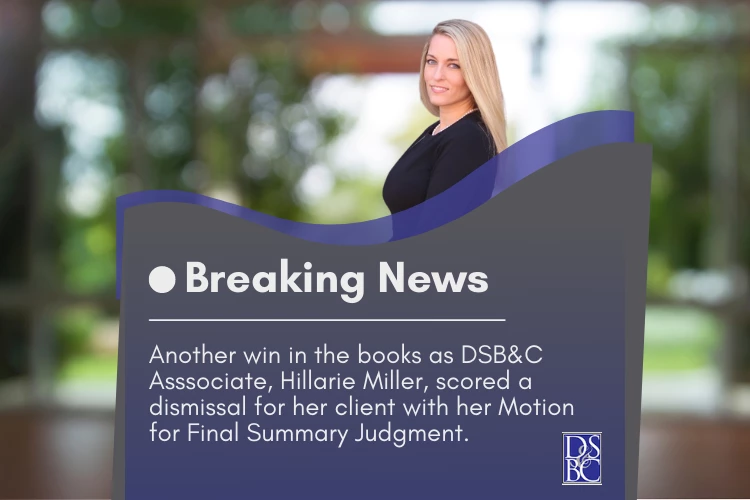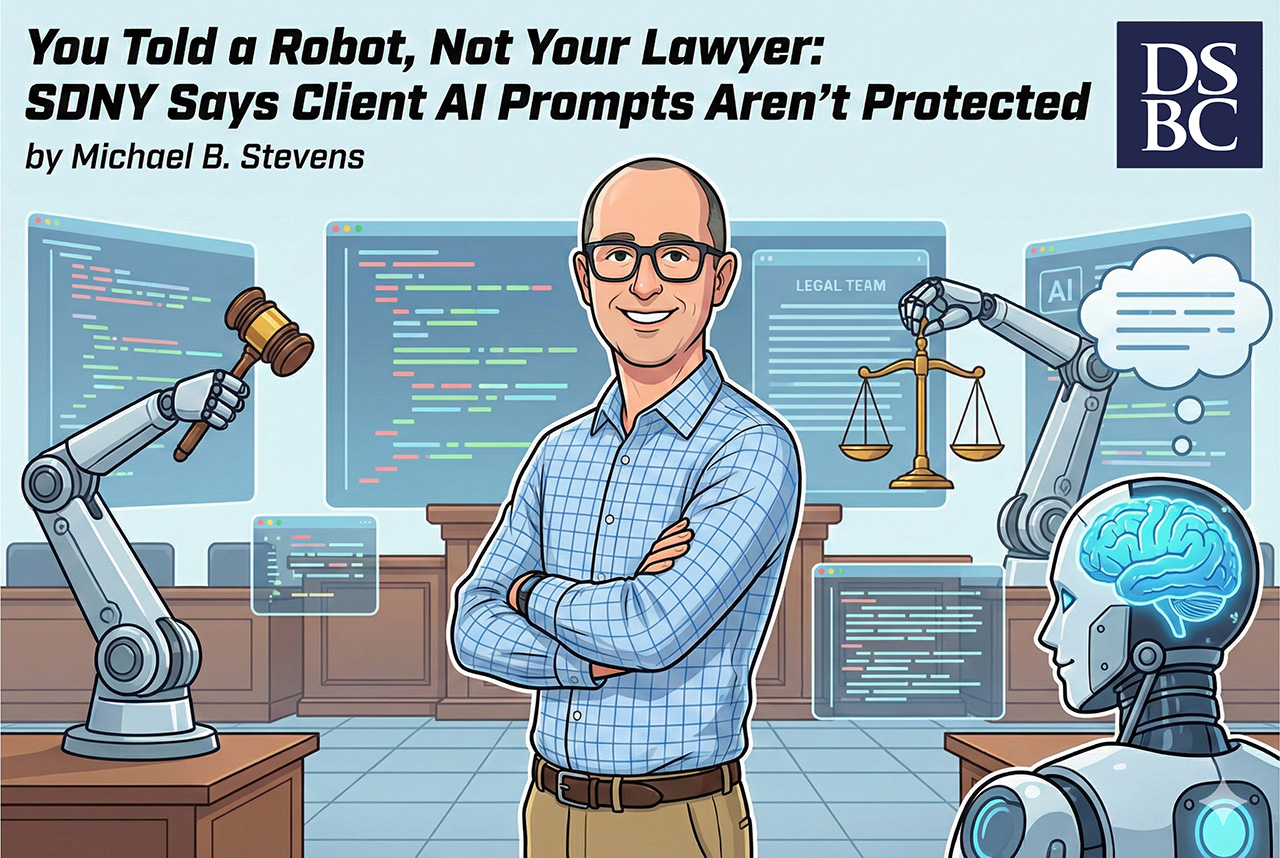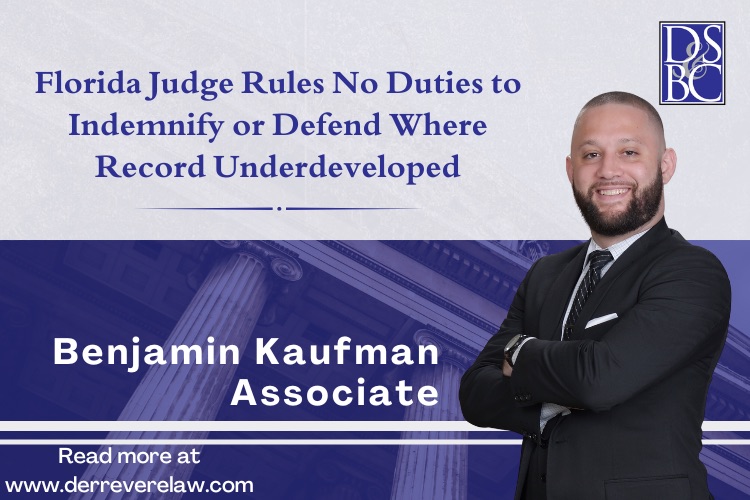Hillarie Miller Scores Another Dismissal via Motion for Summary Judgment

June 7, 2022 – (West Palm Beach, FL)
This action arose out of an incident wherein Plaintiff, a tenant of a single-family home owned and managed by a nationwide home leasing company, slipped and fell on a transitory foreign substance on the floor of the master bathroom. Plaintiff alleged that the substance was rainwater coming from the ceiling as a result of a roof leak. The incident was alleged to have occurred very soon after the Plaintiff signed a leased and moved into the Subject Property.
Plaintiff brought a lawsuit against the entities serving as the Landlord and Property Manager of the Subject Property, as well as the Roofing Contractor who had been hired by the Property Manager, almost two months prior to Plaintiff’s tenancy, to repair a roof leak above the master bathroom. Plaintiff asserted a claim of Premises Liability Negligence against each of the Defendants.
Final Summary Judgment was sought on behalf the Roofing Contractor on the basis that under Florida law, the Roofing Contractor did not owe a duty to Plaintiff to maintain the premises and/or repair or warn of dangerous conditions on the premises because, unlike the Landlord and Property Manager, the Roofing Contractor did not have control over the premises. See Lee County Dept. of Trans. v. The Island Water Ass’t, Inc., 218 So.3d 974, 977 (Fla. 4th DCA 2017); see also Welch v. Complete Care Corp., 818 So.2d 645, 649 (Fla. 2d DCA 2002). A party is deemed to have control over the premises if they “have the right to control access by third parties to the premises.” Brown v. Suncharm Ranch, Inc., 748 So.2d 1077, 1078 (Fla. 5th DCA 1999). The Roofing Contractor was merely a past-invitee on the premises and did not have control over, let alone access to, the Subject Property at or near the time of the alleged incident.
The Landlord and the Property Manager opposed the Roofing Contractor’s Motion for Final Summary Judgment, arguing that they were entitled to have a jury determine an apportionment of fault between the Landlord, Property Manager, and the Roofing Contractor. They argued that the Roofing Contractor was negligent in diagnosing and repairing the roof leak over the master bathroom two months prior to Plaintiff’s alleged slip and fall, and that the “defect” in the Roofing Contractor’s inspection and subsequent repair was “latent.”
However, it had come to light during the course of discovery, that the area of the roof that leaked on the date of the incident was a separate and distinct area of the roof than had been repaired by the Roofing Contractor two months prior. In fact, the roof at the Subject Property was old, in disrepair, and had a history of roof leak repairs. It was further discovered that, prior to hiring the Roofing Contractor, the Landlord and Property Manager had solicited a second proposal for roof repairs from a different roofing contractor. The second roofing contractor provided the Landlord and Property Manager with an inspection report identifying four potential roof leak areas, including the area of the roof which leaked on the date of the incident.
At the hearing on the Motion for Final Summary Judgment, the Roofing Contractor established (1) that there was no duty or control of the premises, (2) that the area of the roof it repaired two months prior to the incident was, in fact, correctly diagnosed as a roof leak over the master bathroom, (3) that its repair work had not failed and did not cause Plaintiff’s alleged slip and fall, and (4) that any alleged “defect” in its diagnosis of the master bathroom roof leak was “patent” because the Landlord and the Property Manager knew that there was a second suspected leak in the master bathroom prior to the incident and chose not to address it. For a defect to be considered “latent,” it must be “hidden or concealed” and “not discoverable by reasonable and customary inspection, and of which the owner has no knowledge.” Alexander v. Suncoast Builders, Inc., 837 So.2d 1056, 1058 (Fla. 3d DCA 200). Accordingly, Final Summary Judgment was entered in favor of the Roofing Contractor.



